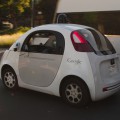A whole new automotive market segment is being created as an outgrowth of the burgeoning ride-sharing networks, and General Motors Co. (GM) aims to play a leading role in its future.
The automaker has invested $500 million in Lyft, the ride sharing service trying to steal some thunder from industry leader Uber. But the allure is not just in the promise represented by Lyft drivers being provided with GM cars, or the ability of drivers and customers to tap into GM’s in-car connectivity services like OnStar.
GM is betting that an alliance with Lyft will give it a leg up in the race to develop a network of autonomous vehicles – or driverless cars – that will serve millions of people on demand while conserving time and energy.
The investment also comes with a seat on Lyft’s board of directors (to be occupied by GM President Dan Ammann) and some degree of influence over its future direction. For Lyft, it’s part of a financing round that doubles its total financing and gives it a valuation of $5.5 billion.
You Might Also Enjoy: Lyft to Raise $1 Billion, Enter Fast Lane with Uber
It’s the broader strategic goals around a smart car future that make this a deal worth watching. It’s not just development of an autonomous car that’s at stake, it’s the creation of a whole new business model around “personal mobility.” It’s a future, Ammann said in a statement, that GM sees “as connected, seamless and autonomous.”
Uber, the leading ridesharing business, is hot on the case in developing a safe, working, self-driving car, having spent 2015 building its robotics team. Meanwhile, other partnerships – Ford and Google comprise one of them – are also jumping into the fray.
Success in autonomous vehicle development may be key to maintaining the lead in the evolving automotive market. The growth in car sales in urban areas is expected to slow over the next 10 years. A recent McKinsey & Company study projected that as many as 15% of cars sold in 2030 could be fully autonomous, with one in ten being part of a sharing arrangement, not privately owned.
GM is hoping its Lyft partnership will help it manage the resulting impact on its business this will bring about, as the industry shifts from being automakers to being mobility companies.






